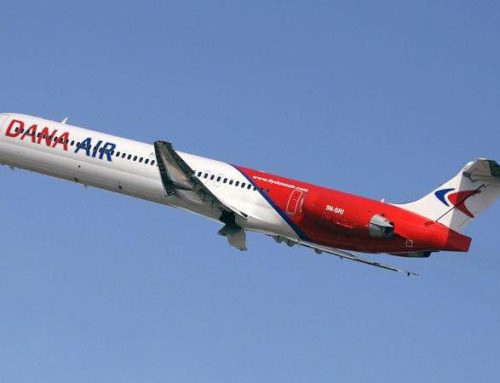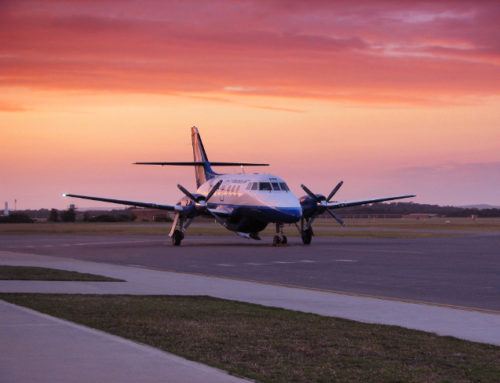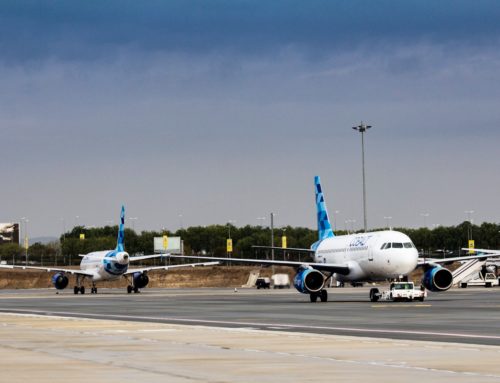An interview with Air Bagan Chairman U Htoo Thet Htwe.
Air Bagan is the first fully privately owned airline of Myanmar and one of the major domestic carriers. The airline commenced operations in 2004 and is a subsidiary of Htoo Trading. Air Bagan currently serves 21 domestic destinations with a fleet of two ATR 42s and two ATR 72s. The average age of the fleet is 20.6 years. In 2007 the airline commenced international flights to several Asian destinations. Nearly all services were dropped later. Currently the only international destination is Chiang Mai.
The company has a lot of private and government-owned competitors. Since the political changes in Myanmar a lot of new start-up carriers have been launched in the country.
ch-aviation: Air Bagan commenced operations in 2004 as the first fully privately owned airline in Myanmar. What were your main challenges during start-up and within the first years of operation?
U Htoo Thet Htwe: When we started, scarcity of human resources was the biggest challenge we came across. Pilots, engineers, qualified and competent employees. Another difficulty encountered was in selecting and restricting to one aircraft type operation.
ch-aviation: How would you describe your initial business model and the competitive situation in the domestic market at the time you launched?
U Htoo Thet Htwe: Air Bagan was established as a full-service carrier, which focuses on safety first and provide exceptional services to our customers. As we aim to develop the tourism and air transport industry in Myanmar, our business model did not solely concentrate on profits initially. For instances, we operated to remote areas in the country to fulfill the transport requirement of our local people.
The competition was not very high in the domestic market at the time Air Bagan was launched. Within short periods, most people were aware of and became loyal to our brand. We became the market leader with as much as 31% market share in 2008.
ch-aviation: Were there any major problems for you as an airline because of international sanctions, which have fortunately been lifted now?
U Htoo Thet Htwe: The payment transaction was the major problem. But we still could manage to overcome the obstacles.
ch-aviation: In 2007 Air Bagan commenced international operations. Why were all scheduled international destinations except Chiang Mai dropped again?
U Htoo Thet Htwe: In 2007, Air Bagan operated scheduled flights to Bangkok and Singapore, which are among many other scheduled and chartered flights regionally. We suspended our international operations due to the unfavorable political and economic reasons in 2007. Money transaction was huge impact on international operations when the economic sanction was imposed on us after 2007 monk protest. But we are currently successfully operating our flights between Chiang Mai and Yangon.
ch-aviation: More and more international carriers are starting flights to Myanmar or are increasing frequencies. Do you have plans to restart more international operations again yourself? What markets would be of interest to you?
U Htoo Thet Htwe: Our strategy is to focus on domestic operations while to be boutique in terms of international by offering full services and operation to niche markets. We will continue operating between Chiang Mai–Yangon, and we have a plan to launch Chiang Mai-Mandalay operation in this season.
ch-aviation: Since 2010, when the government made major policy changes, a lot of new carriers have commenced operations. Is this a problem for you and other established carriers or does the passenger growth cover this leaving enough room for everyone?
U Htoo Thet Htwe: According to Air Bagan’s internal market research, there was an increase of 48% domestic travelers in the year 2011-12 from previous year, but only 5.4% increase in 2012-13. And since 2010, there are a lot of new carriers in the market with addition of fleets. Hence, passenger growth, though higher now, is still inadequate to beneficially split among all old and new carriers due to insufficient hotel accommodation and other infrastructures needed to attract more tourists to come into the country.
ch-aviation: What were other major changes you could observe in the domestic market following the major governmental policy changes?
U Htoo Thet Htwe: All international destinations were through Yangon, so domestic carriers transported all of Myanmar’s international passengers to and from Yangon. Now with opening up of Mandalay to international carriers, domestic carriers lose all their Mandalay/Yangon and Yangon/Mandalay international passengers. However, there are positive changes to our airline industry too. For example, Japan Aids on air navigation facility to improve safety standard. More insurance brokers are coming to the market and the insurance premium rate is going down. Near future, we expect that we enable to choose fuel suppliers as the government policy has changed to opened market.
ch-aviation: What do you think of the start-up Golden Myanmar Airlines, the first low-cost carrier in your country? Will they be successful competing against MAI and LCCs from other ASEAN nations?
U Htoo Thet Htwe: Currently, the infrastructure in Myanmar is not “low-cost friendly” or perfect for low cost carrier. For instance, we have high fuel price, lack of state-of-the-art airport infrastructures, and limited resources, in-house training centers, etc. which are all important factors for successfully operating a low cost model.
ch-aviation: Myanmar has currently a high number of domestic and regional carriers, mostly operating with a fairly small fleet. Air KBZ and Air Mandalay have now started limited cooperation. Do you have any similar plans and are you considering mergers or acquisitions to get better economies of scale?
U Htoo Thet Htwe: We currently have code share flights with Asian Wings for some domestic destinations. And due to the limited resources in the country, it is very important for the domestic carriers to have access to shared resources in order get better economies of scale.
ch-aviation: All in all, do you expect that Air Bagan will be able to participate in the market growth and what do you think makes you better prepared as one of the well-established local players?
U Htoo Thet Htwe: We will try to maintain our position of a strong player in the market by strengthening our fleet and most importantly human resources and systems in the coming years. We are still ahead of many local players in terms of being the only domestic airline in Myanmar using computer reservation systems, e-ticketing and global distribution systems. As we invest a lot in training and professional development of our employees, we are confident and well-prepped for upcoming exciting opportunities.
ch-aviation: What is your current customer mix? Do you see more business travelers or more private customers on your flights? Has the number of foreign tourists using your services increased significantly?
U Htoo Thet Htwe: It’s a mix of tourist and local. But we can see our share for the tourists market is growing every year. In 2012-13 it’s a ratio of 56:44.
ch-aviation: Your fleet of two ATR42-300s, one ATR72-212, one ATR72-500 and one Fokker 100 is not really young with an average age of approximately 20 years according to our (ch-aviation) data. Are there any concrete plans yet for a replacement and do you expect to place orders for new aircraft or will you continue to prefer used aircraft?
U Htoo Thet Htwe: Safety has always been the first priority in our organization. All our aircrafts are very well-maintained and being operated according to the rules and regulations. In order to reflect our commitment for safety and uplifting brand image, we are in the process of acquiring some more ATR-72-500 aircrafts to replace/add into our fleet.
ch-aviation: There are plans to build a second airport for Yangon. Do you support these plans or would you be happier withan expansion of the existing airport?
U Htoo Thet Htwe: We prefer the expansion of existing airport. Not only Yangon Airport, but also most of domestic airports must be extended.
ch-aviation: Looking to the future, where do you see Air Bagan in five years?
U Htoo Thet Htwe: Following the recent openings in the country, Air Bagan definitely sees a lot of opportunities in the aviation industry. Nevertheless, it is very important to be in a competitive position with the other international airlines and increasing local players in the coming years.
We see ourselves as a very poised boutique airline, representing Myanmar Identity in the international community while the most networked, reliable and strong domestic airline in Myanmar.
ch-aviation: Thank you for the interview!




